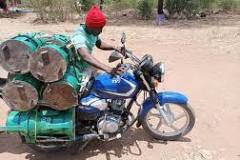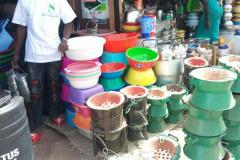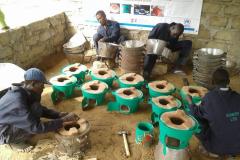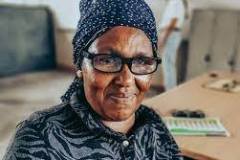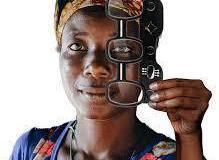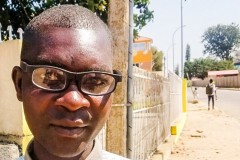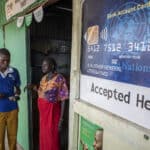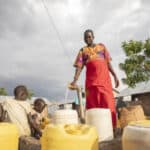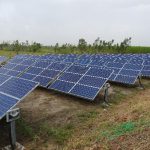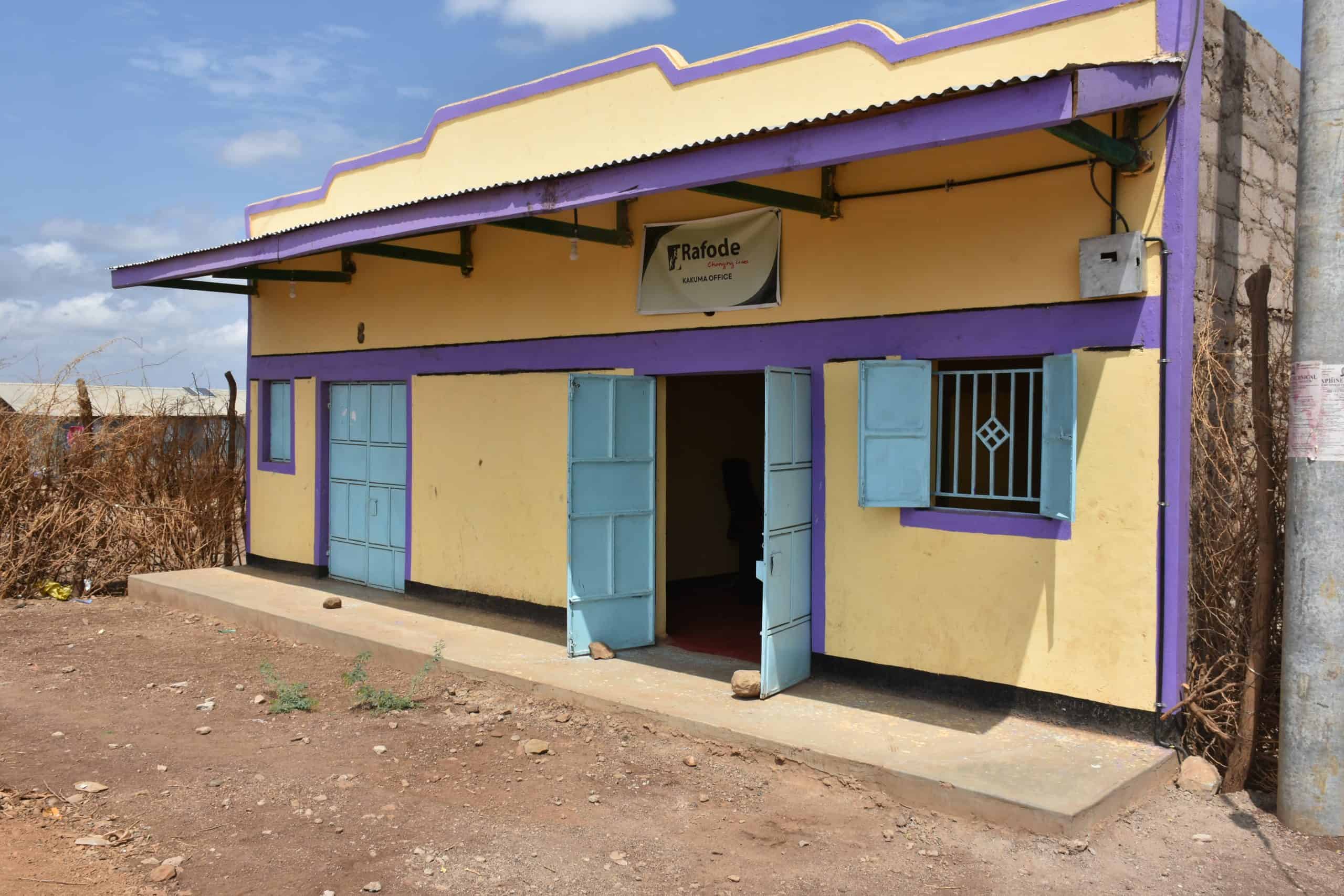
Rafode is a micro-finance company that provides financial services and renewable energy products (solar lamps and energy savings cookstoves) to low-income rural communities who live below $3 per day.
Through the KKCF Funding, the company is expanding its operations to refugees in Kakuma Camp and Kalobeyei Settlement scheme to increase access to affordable financial services and quality renewable energy products.
Visit the Rafode website here: https://www.rafode.co.ke/
FAQs
What attracted you to the Kakuma/Kalobeyei area? Why did you choose to apply for the KKCF funding?
Rafode was interested working with refugee populations, hence the decision to venture into the northern part of Kenya, which is classified as underserved. We applied for the funding to support our entry into Turkana County.
What do you look forward to doing in Kakuma/Kalobeyei? How do you see your business growing in the next 5 years? What challenges have you had to overcome?
Our aim is to provide financial services and renewable energy products for both the host community and the refugees, to support their micro and small businesses and also for household use. We see the portfolio in Turkana County growing to over US$3,000,000 in the next 5 years.
The challenges we have faced so far include:
- The communication barrier, since most of the refugees do not speak English: To overcome this challenge, we have employed staff in the various regions to assist with translation.
- Trust issues: Many clients, in both the host and refugee communities, have expressed misgivings about issues to do with trust as a result of being conned before and losing
their savings. We are building trust by sensitising our clients and working with a faster turn-around time.
What are the expected impacts you foresee in the Kakuma and Kalobeyei area following your interventions?
- A significant increase in the use of renewable energy.
- Cash savings from no longer having to purchase expensive, unsafe and unsustainable fuels like charcoal or kerosene.
- Reduction in household and environmental pollution.
- Improved businesses and increased incomes.
What advice would you give other SMEs that are working in fragile/difficult situations and with refugees and their host communities?
- Develop products that attract clients in such areas by listening to their needs and understanding their income cycles.
- Employ local staff to build up confidence and support acceptance of the enterprise or intervention among the community.
GALLERY
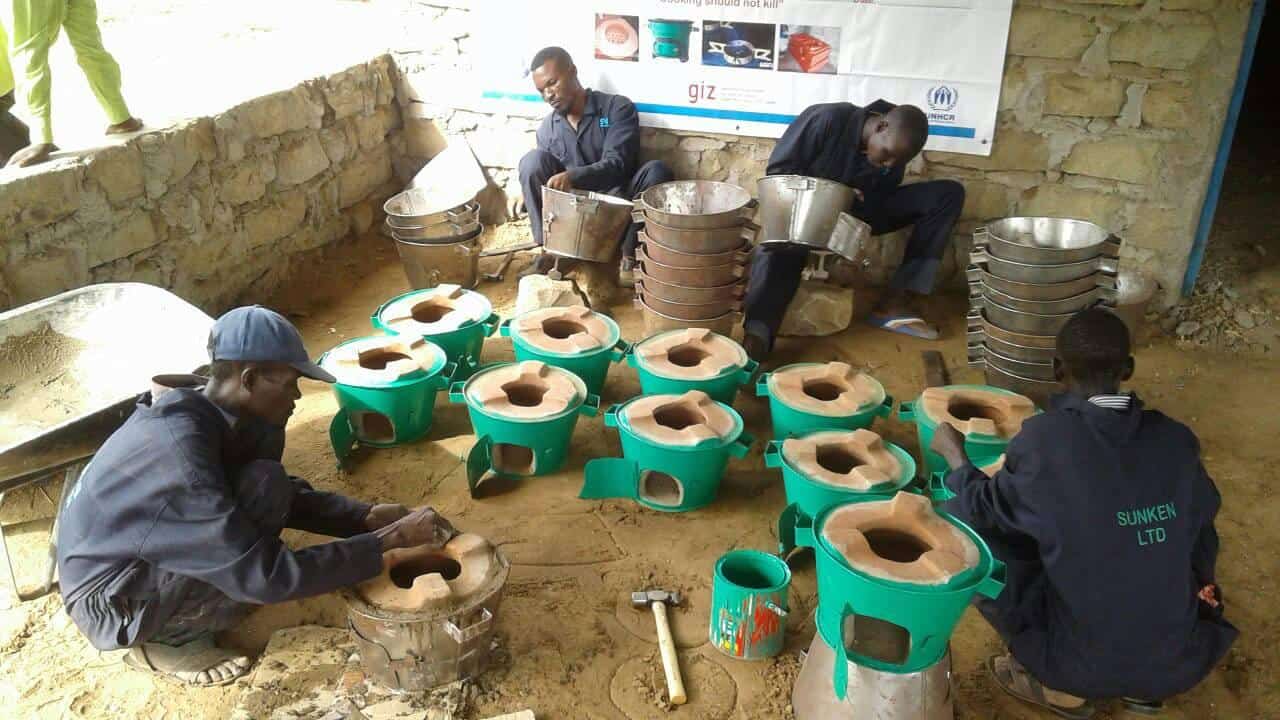
Sunken Limited is a producer of energy-saving cooking stoves specifically targeting low-income earners.
The company has set up a production company in Kakuma that allows it to utilize locally available raw materials. The stoves are predominantly marketed to refugees and the host community in the Kakuma Kalobeyei area. Sunken’s stoves have been recognized and recommended after local assessment by institutions such as SNV and UNHCR; studies have shown that the stoves have a high level of efficiency.
Through KKCF funding, Sunken is scaling up the production and distribution of cookstoves within Kakuma and Kalobeyei area. This will create jobs for the local community specifically for women and the youth, while reducing indoor smoke and resultant respiratory illness at household level. Additionally, the stoves will see increased saving and more disposable income from the reduced purchase of charcoal and firewood.
Company FAQs
What attracted you to the Kakuma/Kalobeyei area? Why did you choose to apply for the KKCF funding?
Sunken limited became involved in Kakuma through the market-based energy access Program initiated by SNV_Netherlands. Our attraction to Kakuma was based on the potential that lies in the northern frontier. With the improvement of the road network all the way to the Lokichogio and South Sudan border, business in this area was only going to thrive
and today we can see the number of businesses that have emerged, with banks opening their branches, come up from banks opening branches, as well as hotels and resorts setting up for business. In 2018 our first venture was the distribution of solar home systems in the region, and it is through this that we responded to the call for stive production units in the area.
We believe that in the initial 3 years of running the business in Kakuma, we made substantial impact in the community and our products were received very well in the market, KKCF was going to give us a boost in improving our supply to meet the demand that was growing at an alarming rate.
Today because of KKCF we have improved our cookstove production by 100% and expanded our distribution network to 106 LMEs throughout the camps.
What do you look forward to doing in Kakuma/Kalobeyei? How do you see your business growing in the next 5 years? What challenges have you had to overcome?
Sunken has been in Kakuma since 2018, One of our objectives is to be the go-to producer of the energy saving cookstoves sold in the region. We look forward to introducing new and affordable clean cooking methods to the population and play a major part in the eradication of the popular open fire method of cooking.
In Kakuma our biggest challenge in the time we have been here has been the recruitment of competent personnel and also getting the women in the region to heed our call for employment.
What are the expected impacts you foresee in the Kakuma and Kalobeyei area following your interventions?
Job Creation is the biggest social impact we look forward to delivering on, as we carry out training and skills development for the host communities and refugees. The jobs will also be created in the value chain from the production to transport and also procurement of locally available raw materials.
What advice would you give other SMEs that are working in fragile/difficult situations with refugees and their host communities?
Pricing is key: For all those getting into the Market for the first time, they need to put real thought into their pricing in order to be competitive, Analyse your competitions pricing. Kakuma is generally a low-income market.
Culture: Kakuma/Kalobeyei is home to numerous multi-Nationals with diverse cultures and this has a huge impact on the work-place, from recruitment to job allocation.
Gallery
Visit the Sunken website here:
https://sunkenlimited.com/
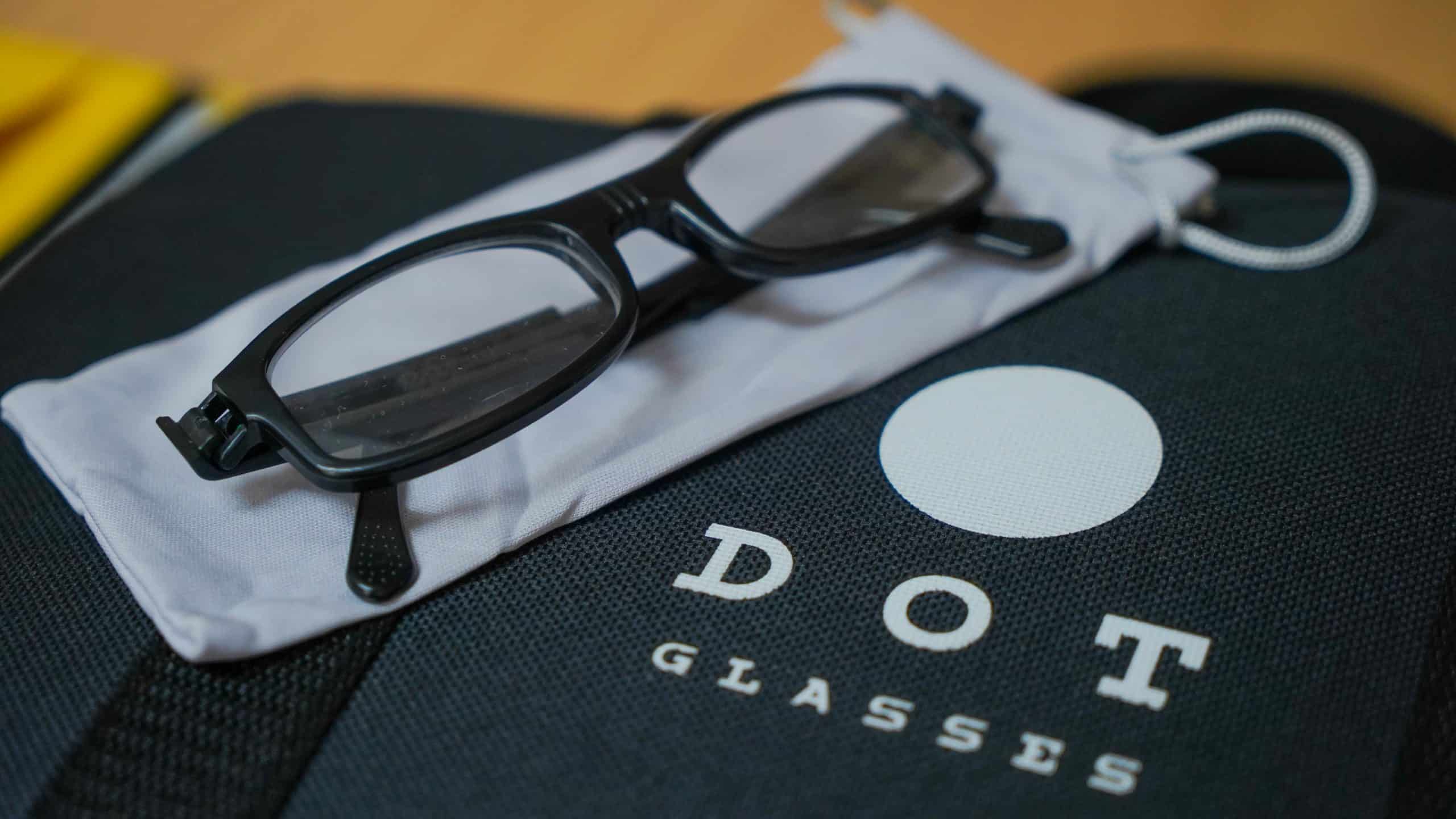
Wessex Social Ventures (WSV) is a social enterprise that avails DOT Glasses to communities in 14 countries in East Africa, West Africa, South Asia, and Central Asia. In Kenya, DOT Glasses focus on rural and peri-urban areas targeting the poorest and most underserved.
DOT Glasses provides low-cost adjustable eyeglasses to those who could not previously afford or access them. Through a network of local retailers, glasses can be dispensed in local communities while more serious cases are referred to the existing vision clinics.
Through KKCF funding, DOT Glasses are building a sustainable, self-financing network of micro-entrepreneurs to test vision and dispense glasses. This will create jobs in the Kakuma/Kalobeyei area while helping both the refugee and host communities to improve vision – which will have a positive effect on work productivity, school performance, safety, and general life satisfaction. Lessons learned from the Kakuma Kalobeyei area will see DOT Glasses scaling to other refugee camps.
Visit the DOT Glasses website here: https://www.dotglasses.org/
Company FAQs
What attracted you to the Kakuma/Kalobeyei area? Why did you choose to apply for the KKCF funding?
The core essence of WSV’s mission is to support communities to address fundamental development barriers. In DOT Glasses, we seek out underserved communities with no basic eyecare options or glasses distribution. The KKCF funding has enabled us to bring DOT Glasses to an isolated and high-risk location to establish sustainable foundations and scale within a significantly reduced timeframe and overall cost.
What do you look forward to doing in Kakuma/Kalobeyei? How do you see your business growing in the next 5 years? What challenges have you had to overcome?
We look forward to bringing the gift of good sight to the estimated 35,000 people who need eyeglasses; enabling them to learn, earn and live better, and prevent issues of low self-esteem and compromised
safety.
In the next 5 years, our work in the KK area will provide a springboard into northwest Kenya and neighbouring regions. We are expanding eyecare accessibility and the distribution of truly affordable eyeglasses. Ours is a sustainable model without any subsidy.
This is the first time we are operating in the KK area and the first time we are operating in a predominantly refugee context. Fortunately, we were able to hire from the host community, thus leveraging the experience of gained from working in the camp with networks of agents. UNHCR have also been immensely helpful in navigating the various health partners in the camp as well as engaging the local government.
What are some of the foreseeable impacts in the Kakuma and Kalobeyei area following your interventions?
- Directly creating 18 jobs
- Providing the gift of good sight to 35,000 people
- Increasing working people’s incomes by 18%
- Improved education performance among students who were previous three times more likely to fall behind their peers. Eye glasses have three to 10 times greater impact on education performance than de-worming or nutrition support (Seeing is Learning, 2017)
What advice would you give other SMEs that are working in fragile/difficult situations, with refugees and their host communities?
We have only just started working in the KK area. However, we have two key pieces of advice:
- Find a strong supporter at UNHCR who likes what you are doing, this has made accessing potential partners and government officials much easier.
- Recruit local staff. They understand the culture and systems.
Gallery


